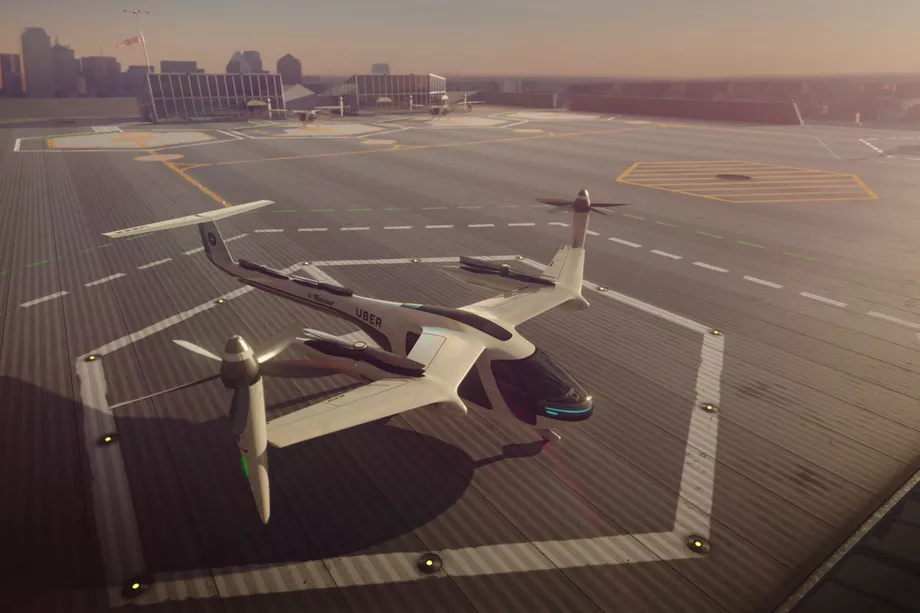0 comments

Flying cars?! Yes, you heard that right. Uber announced their latest project “Elevate”, their aerial rideshare service. This week Uber executives announced a third city where they will be testing these plane-helicopter hybrid, and by 2020, they hope to be testing in Los Angeles, Dallas-Fort Worth and Dubai.
The vision of this “flying car” is to shuttle passengers from rooftop to rooftop, saving time and reducing traffic on the roads. The head of product at Uber says the Elevate project is closer than people may think. Especially with news that rideshares like Uber and Lyft actually increase traffic, this new type of technology will be created to try to fix the increased congestion problem faced in many large cities.
Elevate will make traveling a lot easier, and faster, for consumers. A trip that may take 1.5 hours to drive could take less than 30 minutes using a “flying car”. The goal for this innovative technology is to help public transportation, by creating a new “next-gen” way of traveling. The best part is, it will be made for the public, and not just the super-rich.
This may come as a surprise – when you think “private plane” you tend to think it will be extremely expensive. Uber states that they are trying to get the price relatively low for the service so it will be a true alternative to solving the public transportation issues, and will potentially lead to a decrease personal car ownership.
Uber signed a Space Act Agreement with NASA that would manage these low-flying airplanes. And get this, the airplanes might be autonomous. Uber’s partnership with NASA is a big deal for Elevate, as it allows Uber to appear favorable to a highly respected space organization. NASA’s unscrewed traffic management was a project introduced to replace outdated air traffic control systems, and with Uber’s help, NASA is making strides as well.
While the Uber – NASA partnership is not monetary, the companies are sharing knowledge and expertise to create the best possible project possible.
Even with Uber’s partnership with NASA, the project will still face hurdles, and isn’t expected to hit the public for at least another 5 years. The type of vehicle they are creating will be built to take off and land vertically, which has never been created before. Some experts are skeptical that this infrastructure will ever be possible. Nevertheless, Uber is still trying.
In fact, Uber isn’t the only company developing a plan for flying cars. Airplane manufacturers like Boeing and Airbus are also in the running for this type of technology, as well as other startups. Out of all these companies, Uber seems to be the company coming out ahead, with already established partnerships with aircraft manufacturers, regulators, and real estate firms and landlords.
It will be exciting to see if and when “Elevate” and other flying car programs become a reality. Would you feel safe flying in one of these?

Felicia is a Multimedia Guru at RideGuru. She recently graduated from Bentley University with a B.S. in Marketing and minor in Computer Information Systems, and is currently attending Columbia University for her master's. She is an avid rideshare user who enjoys both domestic and international travel.
No comments yet. Be the first!